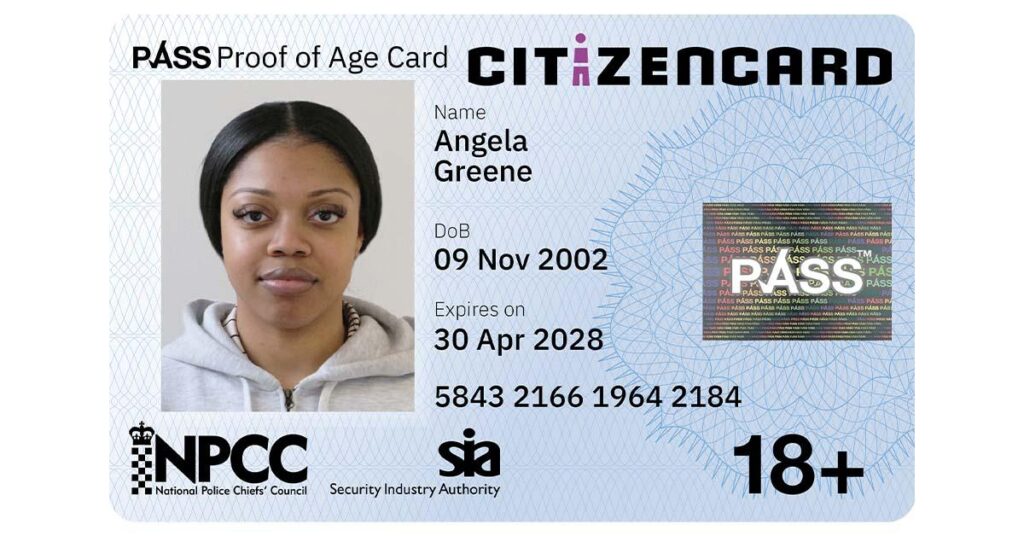In recent months, a wave of misinformation has surfaced regarding the residency rights of Igbos in Lagos State, Nigeria. Claims suggesting that individuals from this ethnic group are required by law to obtain identity cards to live and work in the bustling metropolis have sparked widespread concern. Africa Check, an independent fact-checking organization, has stepped in to clarify these misconceptions. This article will explore the origins of these claims, the legal framework governing residency in Lagos, and the implications of such misinformation for Nigeria’s diverse population. As the nation grapples with long-standing ethnic tensions, understanding the facts is more crucial than ever.
Clarifying the Misconception Around Identity Card Requirements for Igbos in Lagos
A persistent rumor has circulated in recent years claiming that individuals from the Igbo ethnic group must acquire specific identity cards to live or work in Lagos State. However, this assertion lacks any legal grounding and is unfounded. Authorities have clarified that there are no laws that mandate Igbos—or any other ethnic group—to present identity documents to reside in this bustling city. The Lagos State government emphasizes that residency in the state is open to all Nigerians, irrespective of their ethnic backgrounds.
Understanding the implications of this misconception is crucial. Misrepresentations can lead to unnecessary barriers for citizens seeking opportunities. To further clarify:
- No legal requirement for identity cards: Residency is not dictated by ethnic origins.
- Open access: Nigerians have the right to live in Lagos without additional documentation based on ethnicity.
- Encouraging diversity: Lagos thrives on the contributions of various ethnicities, including the Igbos.
Understanding the Legal Framework Governing Residency in Nigeria’s Lagos State
The legal framework governing residency in Nigeria’s Lagos State is characterized by various laws and policies designed to protect the rights of all individuals, irrespective of their ethnic backgrounds. Contrary to circulating claims, there is no legal requirement for residents, including the Igbo ethnic group, to possess identity cards to live in the state. Such misconceptions may stem from societal attitudes rather than formal legislation. The Lagos State Government operates under the Nigerian Constitution, which guarantees freedom of movement and residence for all citizens across the country.
Additionally, the implementation of policies aimed at enhancing security and social order does not equate to discriminatory practices against any group. While local laws may establish certain regulations to manage urban development and social integration, they do not impose an ethnic-based residency system. Key points to note include:
- Nigeria’s Constitution: Ensures freedom of movement and residence.
- Lagos State Policy: Promotes inclusivity and equal rights for all inhabitants.
- No Ethnic-Based Restrictions: Residency laws apply uniformly, regardless of ethnic affiliation.
As a bustling metropolis with a diverse population, Lagos thrives on the contributions of individuals from various backgrounds. Maintaining peace and order is paramount, yet this commitment must be balanced with adherence to legal norms that promote equality and protect individual rights. Efforts should focus on fostering unity rather than perpetuating divisions based on unfounded claims.
Recommendations for Ensuring Fair Treatment and Equal Rights for Residents in Lagos
To foster an environment of inclusivity and respect among all residents in Lagos, it is vital to implement policies that guarantee equal rights, regardless of ethnic or cultural backgrounds. Local government authorities should actively engage with diverse community groups to understand their specific needs and concerns. This can be achieved through:
- Regular town hall meetings to facilitate open dialogue
- Establishment of support hotlines for marginalized communities
- Training programs for law enforcement on cultural sensitivity and anti-discrimination practices
In addition, creating a transparent system for reporting and addressing grievances related to discrimination can play a crucial role in building trust between residents and authorities. Some practical steps to consider may include:
| Action | Description |
|---|---|
| Awareness Campaigns | Educate residents on their rights and available resources. |
| Partnerships with NGOs | Collaborate with non-profits to support vulnerable populations. |
| Legal Assistance | Provide free legal aid to those facing discrimination. |
Insights and Conclusions
In conclusion, the assertion that Igbos are mandated by law to obtain identity cards to reside in Lagos State is categorically false. Our investigation, supported by credible sources and legal frameworks, underscores that no such requirement exists for any ethnic group within Nigeria. As discussions around identity and residency continue, it is crucial for citizens to rely on verified information rather than hearsay. Africa Check remains committed to fostering transparency and informed discourse, urging individuals to seek clarity from reliable sources to combat misconceptions and promote unity in Nigeria’s diverse society.
